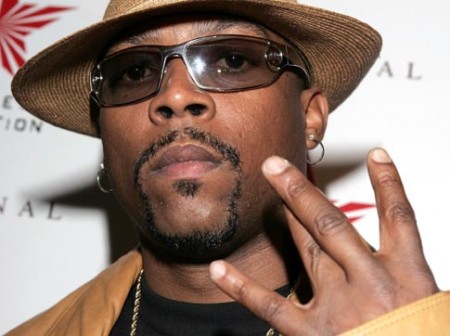Soundcheck: A Final Farewell To Nate Dogg
posted in: Music News • Urban
 Hip hop lost a dear friend one week ago, when Nate Dogg died at the age of forty-one. Born and raised in Long Beach, California, Nathaniel Dwayne Hale helped lay the foundation of west coast rap. He signed to Death Row Records in 1993 after he joined with Snoop Dogg and Warren G to form the rap trio, 213. He made his debut on Dr. Dre‘s classic, The Chronic in 1992 and flooded rap hooks with his unique, soulful voice, narrating the emergence of the G-Funk era. Tracks like How Long Will They Mourn Me? with Tupac Shakur and his first hit, Regulate with Warren G helped put Long Beach on the map and would go down in history as part of a rap revolution.
Hip hop lost a dear friend one week ago, when Nate Dogg died at the age of forty-one. Born and raised in Long Beach, California, Nathaniel Dwayne Hale helped lay the foundation of west coast rap. He signed to Death Row Records in 1993 after he joined with Snoop Dogg and Warren G to form the rap trio, 213. He made his debut on Dr. Dre‘s classic, The Chronic in 1992 and flooded rap hooks with his unique, soulful voice, narrating the emergence of the G-Funk era. Tracks like How Long Will They Mourn Me? with Tupac Shakur and his first hit, Regulate with Warren G helped put Long Beach on the map and would go down in history as part of a rap revolution.
His 1998 double album, G-Funk Classics: Volume 1 & 2 was a fan favorite, and was followed by his 2001 chart-topper Music & Me. Legal troubles hindered the rapper’s planned 2004 release of his self-titled album, Nate Dogg, ultimately postponing the drop date until 2008. In 2007, he suffered a stroke in Pomona, Ca, and in September of 2008, he suffered a second stroke, ending his music career with his final release. His health troubles claimed his life on March 15, sending another rap legend to an early grave.

For me, the loss is a bit more personal than another rap legend passing away. Nate Dogg played an intricate role in shaping my relationship with rap music. At the tender age of ten, I bought my first rap single, Regulate by Warren G and Nate Dogg. I had my first fight with my father, when he confiscated the music that was in his opinion, inappropriate. It was the first time I felt censored. The first time I felt my thirst for rebellion be quenched through music. As a ten-year-old girl in an upper-middle class suburb, I certainly couldn’t relate to the song’s literal story getting in a fight with rival gang members in my neighborhood, calling for back up and anticipating a raunchy rendezvous in a seedy motel”but that wasn’t the point. I could relate to the melody, to the beat, to Nate Dogg’s powerful voice radiating through the bass line like a drum. His bellowing story-telling narrated a fantasy world that caused a stir in me I had never felt before. It was fun, it was exciting, almost like being catapulted into a four-minute action movie. I felt empowered, instantly memorizing the lyrics, mimicking them in my mirror, giving my best effort at a gangster pose.
Now, as I sit and write this column from my home in Pomona, I can see the rooftop of the hospital that treated Nate Dogg for his first stroke. An odd sense of time and place overwhelms me, and I find it peculiar that our paths intertwine, without ever intersecting. He’s so close, and so far away at the same time. Kind of like hip hop. Kind of like the story it tells and the picture it paints. If you close your eyes, you can find yourself there. Perhaps in a different battle than the rapper, but fighting just the same. Using their words as a personal anthem, borrowing their swag and substituting rhymes for redemption. Nate Dogg’s voice lit a fire in me and ignited my love for hip hop. He gave me my first taste of rebellion, of overcoming oppression, of self-expression. Like so many artists unknowingly do, he helped define my voice in a way that would later help define my life.
To him, I would like to give one final “thanks”. Sixteen years ago he invited me into a world that I’ve never left, and introduced me to a part of myself I may have never known.
